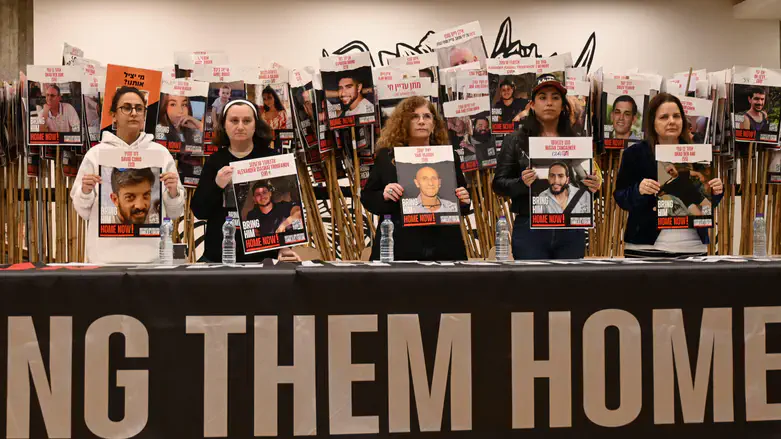
Juda Honickman is a writer, proud Zionist, and longtime advocate for the people and Land of Israel.
There are few phrases that strike the Israeli soul more deeply than “Bring Them Home.” It is a moral imperative etched into our national identity. As Jews, as Israelis, as human beings, we believe in doing everything we can to rescue our own. We pray for them. We march for them. We cry for them.
But here’s the painful, gut-wrenching truth no one wants to say out loud:
We cannot afford to base national strategy on hostage return alone — not when the cost may be the future of our state.
It has been 575 days since October 7, 2023.
And still, we are trapped in the same impossible dilemma:
On one side — 59 hostages still held in Gaza.
On the other — a genocidal terrorist regime exploiting every minute, every negotiation, every humanitarian gesture as an opportunity to survive, regroup, and kill again.
And still, we’re being asked the same question:
Are we willing to pause — or even end — this war to secure the return of dozens of our people?
The question itself is a trap.
Because it ignores what this war is about. It was never only about the hostages. It was never only about October 7. This is about whether Israel — the only Jewish state on Earth — has the right to defend itself from those who seek its annihilation.
Let’s be honest. Hamas is not holding the hostages because they value human life. They are holding them because we do. And they’re betting on our morality to be our downfall. Every video, every “proof of life” release, every ultimatum — it’s all a psychological war, designed to twist the knife in our collective conscience.
And it’s working.
It’s dividing our people.
It’s paralyzing our government.
It’s stalling our military.
And worst of all, it’s giving Hamas exactly what it wants: time.
Time to rebuild. Time to hide. Time to prepare for the next October 7.
None of this means we stop caring. It means we start thinking.
Of course we want them home. Every single one. But we cannot let our enemies dictate the terms of our national survival. We cannot trade temporary relief for permanent danger. We cannot sacrifice millions of lives and the long-term security of Israel for the chance — and in many cases, it is only a chance — that a few may be saved.
Let’s also remember the bitter reality:
According to Israeli intelligence and public statements by senior officials, only 24 (or less) of the 59 hostages are believed to still be alive.
The rest are presumed dead.
This isn’t heartlessness. It’s hard truth.
And it’s exactly what real leadership looks like.
Leadership isn’t about giving the crowd what it wants in the moment. It’s about protecting the nation for generations to come — even when it’s unpopular, even when it hurts.
That’s what we must demand now.
The families of the hostages deserve answers. They deserve support. They deserve every possible effort that doesn’t compromise the mission: to dismantle Hamas, restore security, and ensure October 7 never happens again.
And maybe that’s why, personally, I’ve always found myself drawn to a different phrase.
Not “bring them home.”
But “let them go.”
Because bring them home puts the weight — and the blame — on us. As if it’s our failure that they’re still in captivity.
But let them go puts the burden where it belongs: on Hamas.
On the monsters who kidnapped them, caged them, and continue to exploit their suffering for propaganda and power.
We are doing everything we can to bring them home — and we must continue to do so.
But we cannot destroy Israel in the name of saving it.
Because if we trade the long-term safety of millions for the fleeting possibility of rescuing a few — then Hamas has already won.
The truth is hard. But it’s not complicated.
We must bring them home.
But not at any cost.
Because if the cost is Israel’s future — then we all lose.